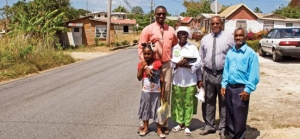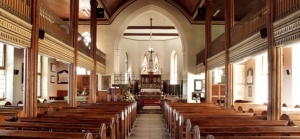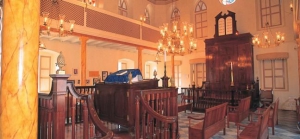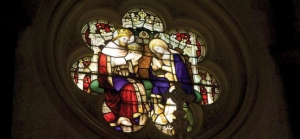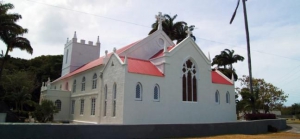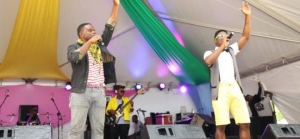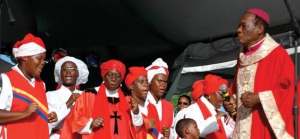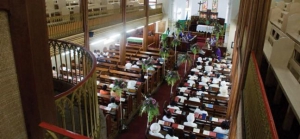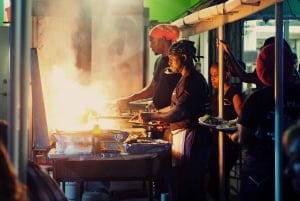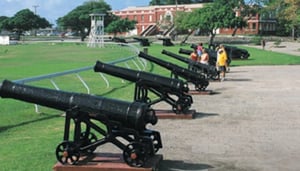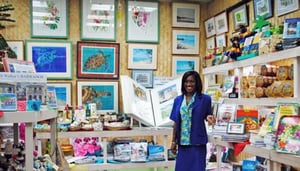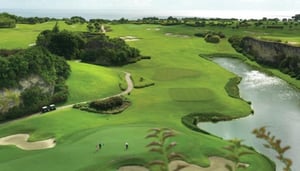Religion
Barbados covers just 166 square miles, yet between its coral and palm-fringed shores there are more than 100 religious sects and more churches than days in the year - Barbadians are generally practitioners and believers. Religion is evident everywhere, manifested in diverse and colourful Caribbean style. Seventh Day Adventists baptize their congregation in the cobalt blue seas; large funeral processions bring traffic to a standstill on the island's narrow roads; Sunday morning sunshine is made even brighter by the brilliant dresses and sharp tailored suits of church-going families, the little girls with matching socks and ribbons and bows, the boys miniature versions of their fathers. A five-minute stroll along Swan Street in Bridgetown reveals dread-locks, turbans and yarmulkas (Jewish skull-caps), a street corner preacher toting megaphone and bible, and uniformed soldiers of the Salvation Army collecting for the cause.
Anglicanism was the state religion in England at the time of settlement of Barbados and it was brought to the new colony as a matter of course. By 1637 there were six parish churches. Bishop Coleridge increased the number of churches and by 1834 there were twenty-one. Actually, for about a century until disestablishment in 1969, Barbados was the only place outside of Britain where Anglicanism enjoyed the privileges of a state church.
Despite this, many other religions took root here. Barbados has the oldest synagogue in the Western Hemisphere predating even those in London and there were signifigant numbers of Jews.
The Irish indentured servants brought Catholicism. There were also Quakers, Moravians and Methodists who were vocal in the anti-slavery movement. The picture began to change with the advent of the Christian Mission and other revivalist churches mostly of North American origin. There are now over 150 Christian denominations in Barbados, along with a number of other religions such as Jehovah’s Witness, Islam, Judaism, Sai Baba and Hinduism with ever increasing numbers.
Churches are found everywhere, in all shapes and sizes, from stately stone Anglican ones with stained-glass windows and pipe organs, to tiny wooden structures containing little more than a few stark benches for their revivalist congregations, to air-conditioned centers seating hundreds. Church attendance is popular and open to all - services are listed in newspapers and tourist publications and radio and television broadcasters devote precious airtime to matters of religion.
Added to this are choral recitations, fund-raising dinners and garden parties, visiting preachers, crusades and gospel concerts all adding to the lively religious spirit of the island. There is even a dedicated annual Gospelfest where local and international artistes converge upon Barbados for a week of events and display their gifts in various expressions to the glory of God. Any visitor to Barbados who takes in some kind of religious event will find it provides a valuable insight into the island's history and way of life. The beautiful harmonies of a forty-strong church choir will appeal to some, while others may prefer the spirited gospel music that encompasses a fusion of jazz, blues, reggae and calypso.
A sea-front church adorned with cascades of tropical flowers will delight the eye of anyone, while the ardent fervor of ministers from the Spiritual Baptist church adds an interesting note to Crop Over activities. Out in the countryside, away from the kaleidoscope of colour and clamor of sounds, a few moments in a small wooden church will bring only the sound of the wind rustling through the surrounding canefields, just as it did 300 years ago.
Attending service at one of the beautiful parish churches while on holiday is a pleasant way to interact with Barbadians and get a first hand glimpse of life here. If you're looking for something specific though, there is a very comprehensive list of churches in the Yellow Pages of the Barbados telephone directory, available online here. Jacket and tie is not required but attire is generally quite formal.


